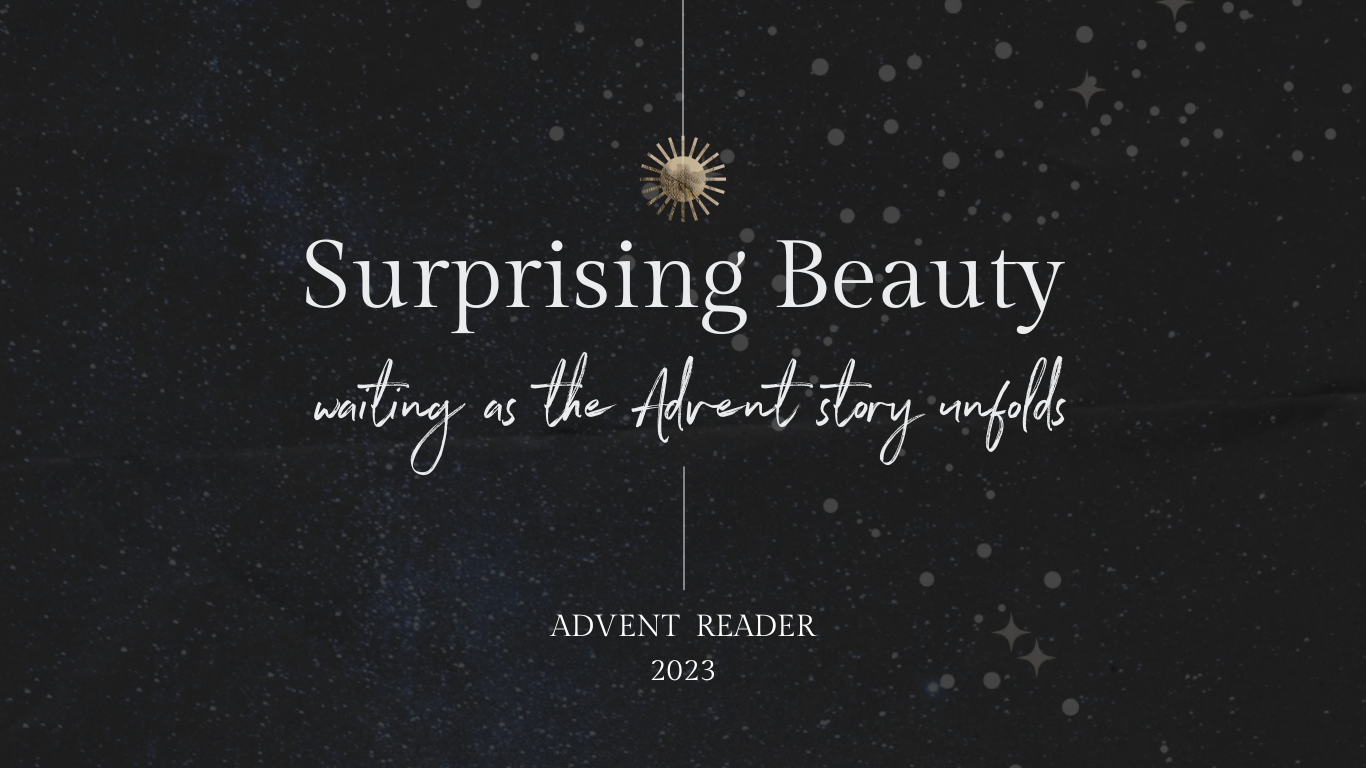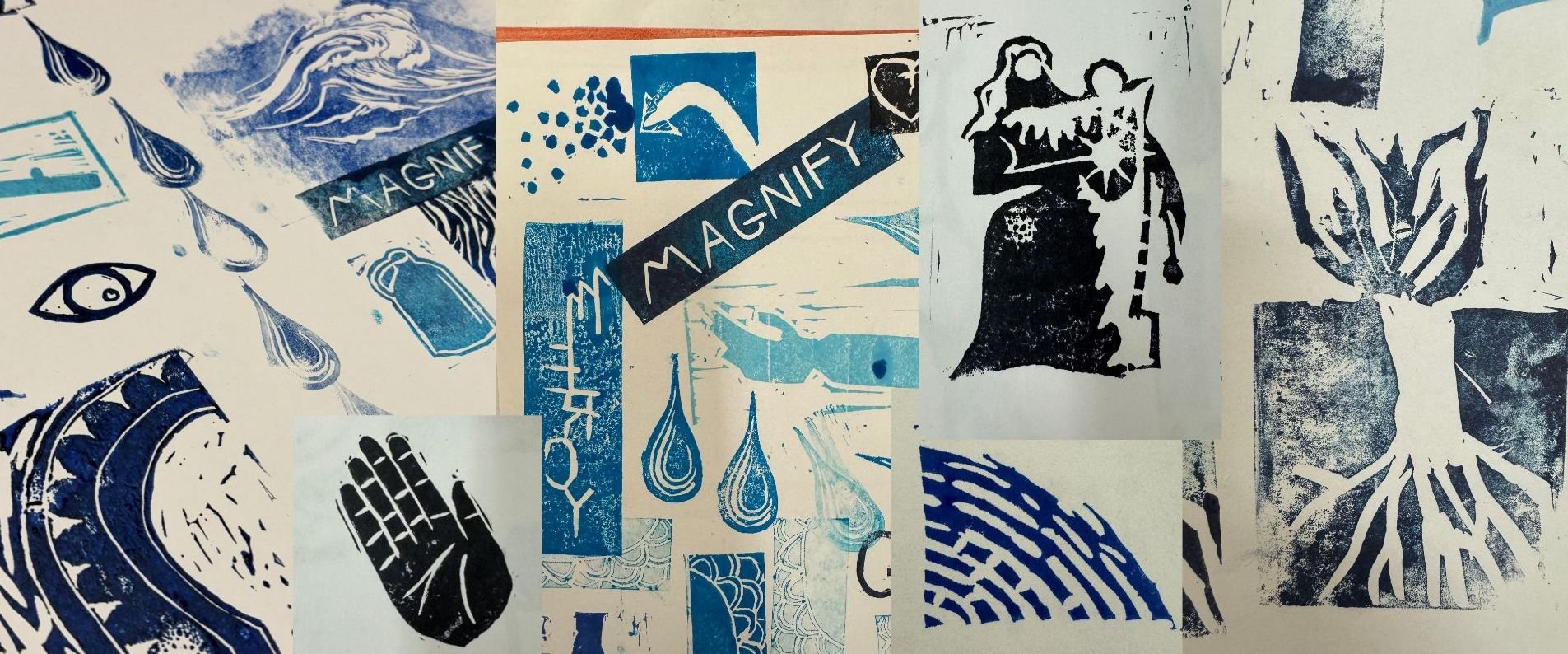Third Monday of Advent

Scripture Reading for Today:
Psalm 125
A song of ascents.Those who trust in the Lord are like Mount Zion, which cannot be shaken but endures forever. 2 As the mountains surround Jerusalem, so the Lord surrounds his people both now and forevermore. 3 The scepter of the wicked will not remain over the land allotted to the righteous, for then the righteous might use their hands to do evil. 4 Lord, do good to those who are good, to those who are upright in heart. 5 But those who turn to crooked ways the Lord will banish with the evildoers. Peace be on Israel.
1 Kings 18:1-18
Elijah and ObadiahAfter a long time, in the third year, the word of the Lord came to Elijah: “Go and present yourself to Ahab, and I will send rain on the land.” 2 So Elijah went to present himself to Ahab. Now the famine was severe in Samaria, 3 and Ahab had summoned Obadiah, his palace administrator. (Obadiah was a devout believer in the Lord. 4 While Jezebel was killing off the Lord’s prophets, Obadiah had taken a hundred prophets and hidden them in two caves, fifty in each, and had supplied them with food and water.) 5 Ahab had said to Obadiah, “Go through the land to all the springs and valleys. Maybe we can find some grass to keep the horses and mules alive so we will not have to kill any of our animals.” 6 So they divided the land they were to cover, Ahab going in one direction and Obadiah in another. 7 As Obadiah was walking along, Elijah met him. Obadiah recognized him, bowed down to the ground, and said, “Is it really you, my lord Elijah?” 8 “Yes,” he replied. “Go tell your master, ‘Elijah is here.’” 9 “What have I done wrong,” asked Obadiah, “that you are handing your servant over to Ahab to be put to death? 10 As surely as the Lord your God lives, there is not a nation or kingdom where my master has not sent someone to look for you. And whenever a nation or kingdom claimed you were not there, he made them swear they could not find you. 11 But now you tell me to go to my master and say, ‘Elijah is here.’ 12 I don’t know where the Spirit of the Lord may carry you when I leave you. If I go and tell Ahab and he doesn’t find you, he will kill me. Yet I your servant have worshiped the Lord since my youth. 13 Haven’t you heard, my lord, what I did while Jezebel was killing the prophets of the Lord? I hid a hundred of the Lord’s prophets in two caves, fifty in each, and supplied them with food and water. 14 And now you tell me to go to my master and say, ‘Elijah is here.’ He will kill me!” 15 Elijah said, “As the Lord Almighty lives, whom I serve, I will surely present myself to Ahab today.” 16 So Obadiah went to meet Ahab and told him, and Ahab went to meet Elijah. 17 When he saw Elijah, he said to him, “Is that you, you troubler of Israel?” 18 “I have not made trouble for Israel,” Elijah replied. “But you and your father’s family have. You have abandoned the Lord’s commands and have followed the Baals.
Ephesians 6:10-17
The Armor of God10 Finally, be strong in the Lord and in his mighty power. 11 Put on the full armor of God, so that you can take your stand against the devil’s schemes. 12 For our struggle is not against flesh and blood, but against the rulers, against the authorities, against the powers of this dark world and against the spiritual forces of evil in the heavenly realms. 13 Therefore put on the full armor of God, so that when the day of evil comes, you may be able to stand your ground, and after you have done everything, to stand. 14 Stand firm then, with the belt of truth buckled around your waist, with the breastplate of righteousness in place, 15 and with your feet fitted with the readiness that comes from the gospel of peace. 16 In addition to all this, take up the shield of faith, with which you can extinguish all the flaming arrows of the evil one. 17 Take the helmet of salvation and the sword of the Spirit, which is the word of God.
Mary’s Song – Gifted with Emptiness
by Erin Glanville
Dr. Erin Goheen Glanville (she/her) is a community organizer, Biblical storyteller, and spiritual caregiver (aka Lead Pastor) at Artisan Church in the DTES of Vancouver, BC. This work brings together four lifelong practices: community, imagination, justice, and faith. Previously she was on faculty at the University of British Columbia and Simon Fraser University, where she researched and taught refugee cultures. She also serves on the Board of Kinbrace Community Society, where she focuses on community education about refugee claimants.
It’s Monday night and I am sitting at a long wooden table. Around me are eight others from our neighbourhood, a mix of professional artists and people who just love art.
We are creating linocut stamps, which will be used in the first week of Advent, for a community art event at Jacob’s Well—a faith-based non-profit in the Downtown Eastside of Vancouver.
I hold my carving tool like a pencil, angling the wedged blade downward and guiding it into and across the surface of the rubber square. I watch as the ribbon curls upward and detaches, then rub my thumb across the narrow, empty trench left behind.
When the ink rolls over the rubber and the stamp is turned upside down, the emptiness of this cut in the surface will reveal an arrow. I’ve chosen an arrow to represent the unexpected directions in Mary’s Song. The humble are lifted up. The proud are scattered. God’s mercy extends across generations. The rich are sent away empty.
Stamp making is itself a humble medium, our facilitator Joy Banks reminded us at the outset. This Advent art about Mary’s Song will be by and for ordinary people. It’s about collaboration. Others will take your stamps and create something new out of them.
I wonder what this will feel like for those in our congregation who are professional artists. I wonder what it feels like for any of us really, who pride ourselves on our craft or our work, to be invited into ordinariness and simplicity. Not artisanal simplicity, but actual ordinariness.
Before we began carving, we took time to reflect together on Mary’s song in Luke 1, an echo of God’s mindfulness of Mary.
We observed the repetitions and the themes. Then, we started to name the tensions we felt:
In order for the humble to be lifted up, the rulers have to be brought down. Mercy is comfortable, but the judgment piece – not so much.
What does the promise to Israel, to ‘Abraham and his descendants forever’ mean right now, as Palestinian civilians die under siege?
Filling the hungry sounds good. Sending the rich away empty...kind of unsettles my idea of a loving Creator.
What if...asks Joben into the silence, what if emptiness is not a bad thing?
I have often heard Mary’s Song interpreted as a private moment of vindication for a marginalized individual under threat. Facing public humiliation on several fronts, Mary sings about a joyful surprise: God’s beautiful plan reverses her fortune! God gives her honour! God gives her people hope amidst generational oppression! So good! In the past, when I have read Mary’s Song devotionally, the invitation has been to praise the loyalty of God to the poor and humble.
But in this moment, around this table, co-creating with Mary, with neighbours, with the Spirit, with metal, rubber, and ink, I am drawn back to God’s mindfulness for the rich who are sent away empty. And I am curious what this means for the Canadian church on a more collective level.
What if, Joben pushes us, the emptiness mentioned in Mary’s Song is not a bad thing? What if, when this line is read aloud at Advent, we don’t need to cringe on behalf of significant donors? What if, instead, we can rejoice with Mary at the prospect of such a gift? The gift of emptiness, offered to us who have much?
The song is for a collective; it’s not only personal. There is rejoicing here, not only for the poor but also for the rich, for the empty and the arrogant.
The theme of need comes up regularly in the work I do with refugee claimants. In partnership with Kinbrace Community Society, I designed a community education series called Becoming Neighbours (2023). Across the year, five unique dialogues each explored a time-tested value that can undergird a dignified welcome for refugees in Canada (welcome, trust, mutual transformation, celebration, and prayer). The theme of need as a gift has emerged naturally in each of those dialogues.
For some participants, the cultural values of independence and self-sufficiency surfaced as barriers. Having everything I need, they notice, displaces deep relationship, community, and a more mutual welcome. For other participants, the indignity of always being on the receiving end—of always being presumed to be empty and in need of filling—requires a reversal. Please, see not only my need but also what I bring; make space for what I can offer, is their invitation to those who traditionally see themselves as the givers. The concepts aren’t new, but putting them into practice in our relationships and organizations can be difficult.
Canadian culture reads “neediness” as an unattractive personality trait. Yet, Mary’s song points out the gift of being emptied. Canadian culture celebrates charity and generosity and values volunteer cultures. Mary’s song reverses even this.
I read Mary’s Song this year, and I still want to rejoice with Mary about God’s vindication for the world’s poor. As part of the Canadian church, though, I sense the first step is locating us honestly as—both the humble poor and also—the wealthy and powerful. And then! Open ourselves to the possibility of beautiful reversals. Become mindful of what and whom the gift of emptiness can make space for.
So my prayer for us is...
Spirit of God,
roll ink over our emptiness,
turn us upside down, and press us into paper.
Show us good possibilities and directions in this cultural moment.
Reveal to us the beautiful gift that our need can be to our communities.

Prints made by Erin at the mentioned stamp-making workshop
Thank you for reading the New Leaf Advent Reader, a collection of reflections from writers across Canada. If you are enjoying the reader, sign up to receive the readings in your inbox each day here: SIGN UP
And please share this reflection with your friends and family who might also enjoy it.



